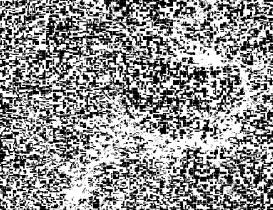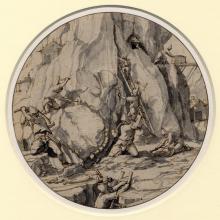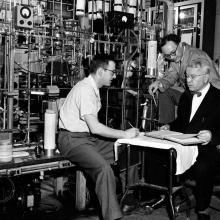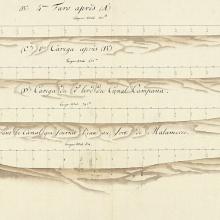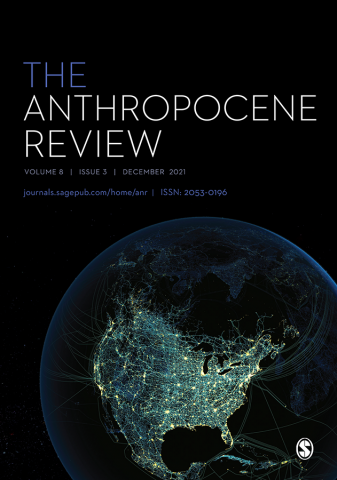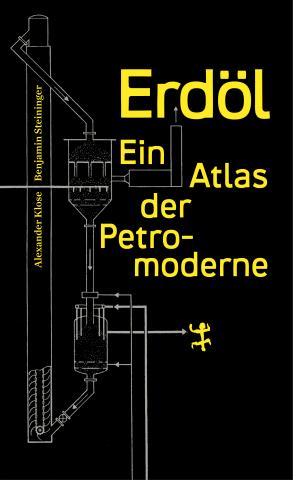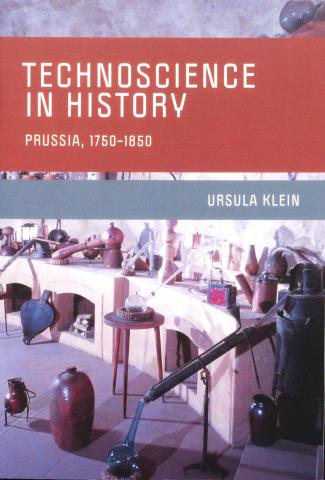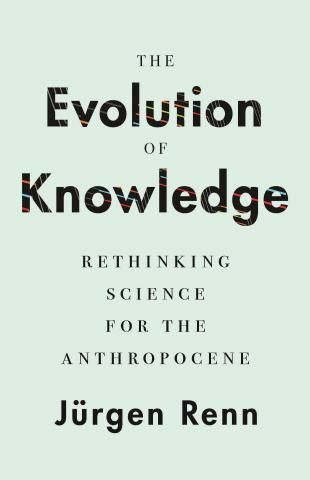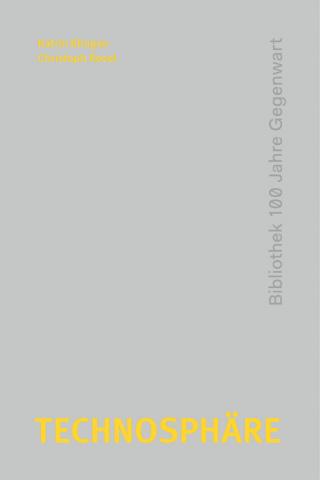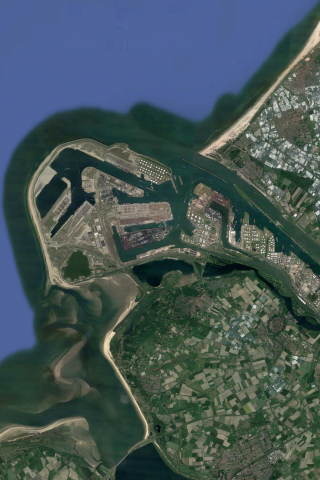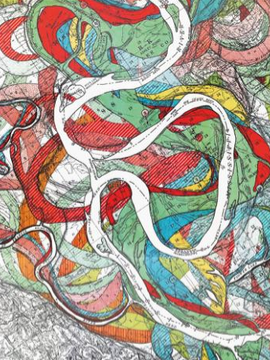The umbrella project aims at a comprehensive understanding of the long-term historical dynamics that have given shape to the current anthropogenic alteration of fundamental geo-biophysical parameters pointedly captured by the term “Anthropocene.” Specifically, it looks at the socio-epistemic and technological frameworks that have co-evolved in the interplay of material practices and specific knowledge economies throughout many centuries of intensified human-environment interaction. The umbrella project is part of the Department’s research emphasis on the long-term developments of material practices and knowledge diffusion that involve the exploitation of natural resources and the creation of man-made environments. With the “Anthropocene,” such research has found a recent conceptual convergence, but also an epistemic challenge.
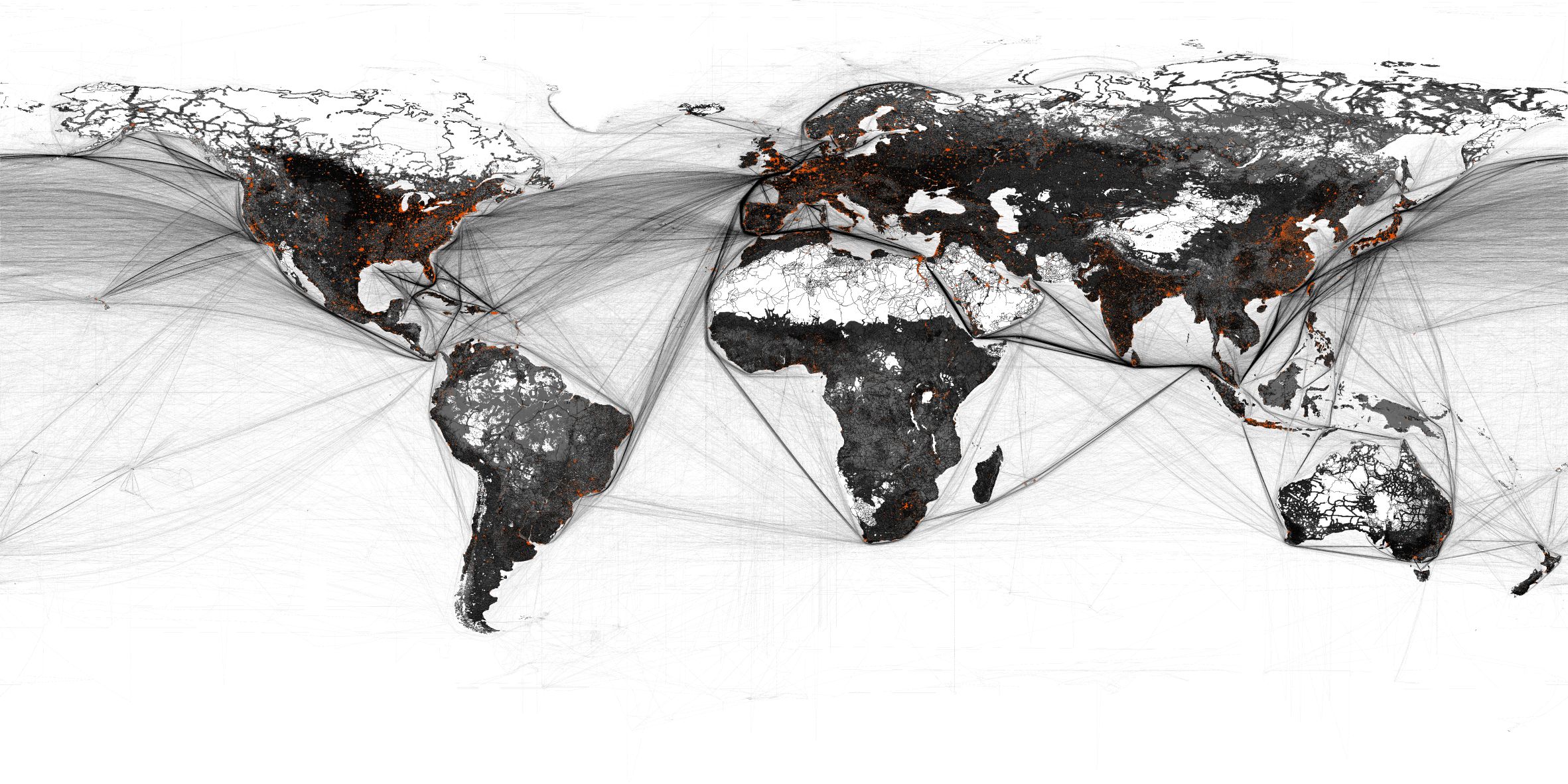
Planetary urbanization at the beginning of the twenty-first century: This map juxtaposes a demarcation of the world’s agglomerations zones (red zones) onto a rendering of the total “used area” of the entire planet (in black). Agglomeration zones constitute only a miniscule percentage of the planet’s operationalized landscapes, which are mostly devoted to primary commodity production (agricultural cultivation, grazing, forestry), resource extraction, transportation and waste disposal. © Nikos Katsikis, Terra Urbis
Planetary urbanization at the beginning of the twenty-first century: This map juxtaposes a demarcation of the world’s agglomerations zones (red zones) onto a rendering of the total “used area” of the entire planet (in black). Agglomeration zones constitute only a miniscule percentage of the planet’s operationalized landscapes, which are mostly devoted to primary commodity production (agricultural cultivation, grazing, forestry), resource extraction, transportation and waste disposal. © Nikos Katsikis, Terra Urbis
The Anthropocene denotes the proposed new geological epoch of humankind that presents an entirely novel, non-analogous situation in the Earth’s history. Capturing the profound and long-lasting impact of human activities on the entire Earth system, the Anthropocene is a powerful concept for investigating the deep biophysical and sociotechnical changes that tie the local to the global as well as the historical to the geohistorical and back. Thus, the notion of the Anthropocene allows different historical horizons to be banded together, in particular longue durée and recently accelerating environmental and socio-epistemic changes, but also changing geographies in the production of technical and scientific knowledge in core areas and peripheries. With the Anthropocene, a changing temporal and spatial configuration of epistemological frameworks is currently underway and thus the aim of the umbrella project is not only to reflect on historical lineages but also, together with a range of national and international partners, to help find new grounds for research and education in a highly interdisciplinary twenty-first century setting. The umbrella project thus firstly aims to adequately describe and uncover the historical matrix of epistemic and technological practices that together constitute potent drivers for the current transition into a new geological epoch. At this junction, the interaction between environments, both ancient and modern, and knowledge production can be conceptualized as a process of co-evolution, including the interplay between knowledge economies and accelerated industrialization.
Secondly, this matrix of practices is also key in understanding the specific forms of reflection upon this very transition, for example, in the conceptualization of the Earth as an evolving system characterized by a natural—and now increasingly artificial—circulation of matter and energy within this system. At this epistemic level, histories of key disciplines such as the Earth and climate sciences provide crucial insights into the co-production of knowledge, for example, the relation between modeling and observation. Moreover, the project cooperates with several institutional partners, not only to foster a more comprehensive understanding but to actively shape sustainable ways of knowledge generation and dissemination in order to address what appears to be the utmost challenge of the twenty-first century.
The umbrella project’s content is organized around two major research areas:
- “Material Practices: The Anthropocene Earth in Formation”
- “Epistemic Configurations: The Formation of Anthropocene Knowledge”

